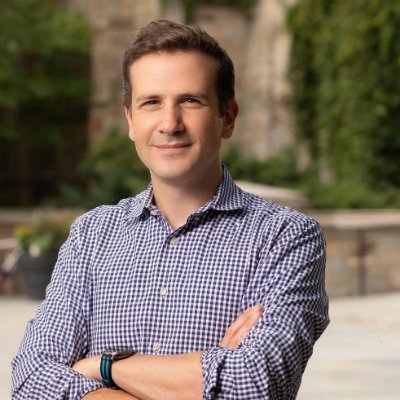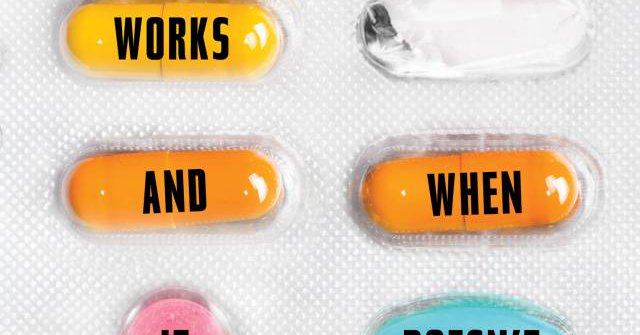
F. Perry Wilson, MD MSCE
@fperrywilson
Followers
17K
Following
8K
Media
2K
Statuses
8K
Director, Clinical and Translational Research Accelerator @Yale. Columnist @medscape. How Medicine Works and When It Doesn't in bookstores now!
New Haven, CT
Joined October 2014
Two years ago, I started writing "How Medicine Works and When It Doesn't" to help people understand the insidious nature of medical misinformation. That's how it started. It's not where I ended up. (thread).
hachettebookgroup.com
Blending personal anecdotes with hard science, an accomplished physician, researcher, and science communicator gives you the tools to avoid medical misinfo...
32
61
305
@AnnalsofIM For now, maybe we worry more about the increasing potency of drugs you can actually fatally overdose on (cocaine, opioids). And maybe we don't begrudge someone the occasional hit of shatter. Whatever that is. More @medscape:
0
0
1
@AnnalsofIM First principle of toxicology: the dose makes the poison. So yeah, if THC has adverse effects, I'd be very surprised if they don't occur more with higher doses. But is rapidly increasing potency a major public health crisis?.Honestly don't know yet.
1
0
2
@AnnalsofIM Here's the thing: we don't really understand dose vs concentration here. There's not much toxicological difference between eating one 10mg gummy vs two 5mg gummies. But concentration makes it easier to get massive doses fast.
1
0
0
@AnnalsofIM Depression data was weird though. Studies testing THC as therapy? Often found it helped depression. Studies looking for harms? Often found it worsened depression. In healthy people? Usually worse. In people with mental health issues? Sometimes better.
1
0
0
@AnnalsofIM What I'm most concerned about: psychosis and schizophrenia. Of 38 studies on this, 58% found higher risk with high-THC. Among low-bias studies? 90% showed higher risk. The vibe is. not great.
1
0
1
@AnnalsofIM Second problem: The researchers called anything over 10% THC "high-concentration.".Nowadays that's probably below average. But if they'd set the bar higher, they might not have had enough studies to analyze at all. Research here has been woefully underfunded for 70+ years.
1
0
0
@AnnalsofIM First problem in this meta-analysis: Only 5% of these studies were rated "low risk of bias.".Many didn't report blinding properly, didn't use standard diagnostic criteria, didn't adjust for confounders, and relied on self-reported cannabis use. Garbage in, garbage out? Maybe.
1
0
0
New study in @AnnalsofIM looked at 99 studies on high-potency THC and mental health, covering 220,000+ people from 1977-2023. The findings? Well. it's complicated.
1
0
2
@JAMANetworkOpen For more detail on the interesting study, and discussion head over to @medscape:../🧵.
0
0
0
@JAMANetworkOpen Look, I love my smartwatch. It helps me delete emails while waiting for the elevator. But C-suite execs reading this study and thinking they can solve burnout with bulk Garmin orders? That's not it. The solution isn't on our wrists. It's in the system.
2
0
4
@JAMANetworkOpen Want to actually cut burnout?.-Give docs more time per patient.-Fix prior authorization hell.-Stop treating physicians like RVU machines.-Maybe trim some administrative bloat?. Mandatory burnout workshops aren't helping. I promise you.
1
0
1
@JAMANetworkOpen The real burnout culprit? It's workload PLUS zero autonomy. Physicians have become labor instead of management. Fun fact: There are now 10 administrators for every 1 physician in the US. TEN.
pnhp.org
Share on FacebookShare on Twitter By James Fieseher, M.D. Foster’s Daily Democrat (Dover, N.H.), April 1, 2022 Our current model…read more
1
1
1
@JAMANetworkOpen My bigger issue: This study puts responsibility for burnout on the individual. "Sleep more! Meditate! Check your step count!".Meanwhile, 75% of US doctors are now employed by hospitals/corporations. They're being pushed to see more patients, generate more RVUs, work weekends. .
1
0
1
@JAMANetworkOpen BUT: This study wasn't blinded. Obviously, you know if you're wearing a smartwatch. When researchers ask about your burnout 6 months later, maybe you unconsciously skew answers? Social desirability bias is real. And could definitely explain these results.
1
0
0
@JAMANetworkOpen The theory of the study: Smartwatches are tiny biofeedback devices. They track heart rate, sleep, steps. Small data → behavior change. People tell me they cut drinking after seeing how it tanks their sleep scores. Maybe docs would make similar lifestyle tweaks?
1
0
1
@JAMANetworkOpen Quick sidebar on what burnout actually IS (per Christina Maslach):. 1. Emotional exhaustion.2. Depersonalization/cynicism.3. Reduced sense of personal accomplishment. Sound familiar? I know. It's really common.
1
0
0
@JAMANetworkOpen fter adjusting for baseline differences, researchers calculated the odds of burnout were ~50% lower in the smartwatch group. Also found: 20% improvement in resilience scores. No differences in: quality of life, depression, or stress scores.
1
0
0
@JAMANetworkOpen Baseline burnout rates:.Intervention group: 50% burnt out.Control group: 43% burnt out. After 6 months:.Intervention: dropped to 41% (↓9%).Control: rose to 51% (↑8%). Not technically statistically significant, but.
1
0
0











